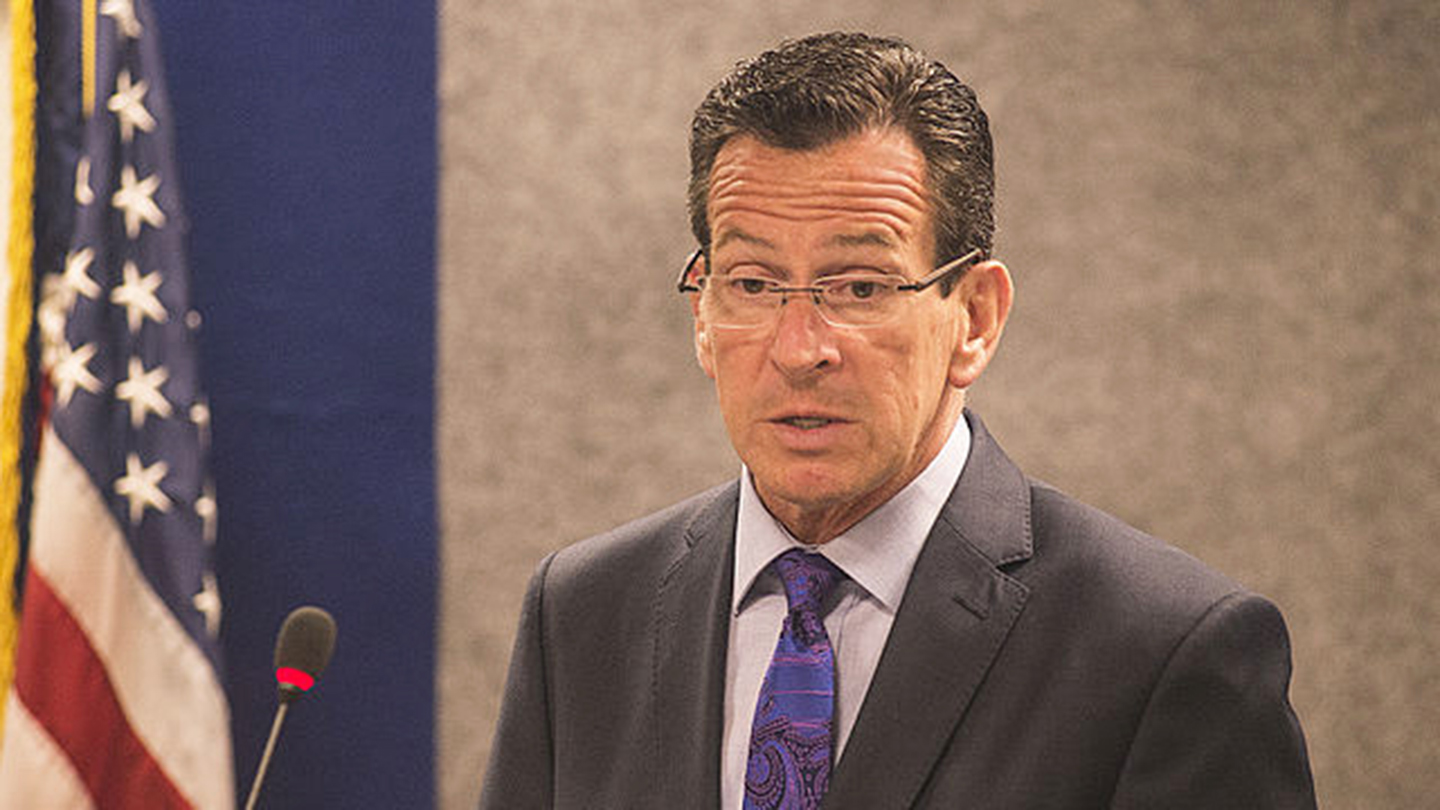
Wikimedia Commons
Gov. Dannel Malloy on Tuesday signed into law most of Connecticut’s long-awaited budget, bringing an end to the longest fiscal standoff in state history.
Malloy praised the budget as an achievement that meets a number of goals his administration has championed. The governor’s signature comes after Democratic and Republican lawmakers on Oct. 26 passed a bipartisan, two-year budget to eliminate the state’s $3.5 billion deficit. Though the over $40 billion budget was passed with enough votes in both chambers to override a veto, Malloy’s stamp of approval officially concludes a 123-day period during which the state went without a budget, instead operating under executive order. Still, the governor exercised his line-item veto authority to axe a provision of the bill that would have raised the hospital tax, arguing that the language violated federal laws.
“After 123 days without a budget, it is time to sign this bipartisan bill into law and continue the steady and significant progress our state has made over the past several years,” he said in an Oct. 31 press release. “Connecticut’s families and businesses deserve to have a budget in place, one that provides a stable environment to live and work.”
In the past few weeks, top lawmakers have largely excluded Malloy from negotiations. Malloy may not have been in the room where it happens, many of his policy initiatives made their way into the budget, Senate Majority Leader Bob Duff, D-Norwalk, noted.
According to the Oct. 31 press release from Malloy, the bill includes several of the governor’s top priorities, including the creation of the Municipal Accountability Review Board, which will try to prevent Hartford from falling into bankruptcy, as well as the development of a formula-driven education cost-sharing grant.
“While the governor was not directly involved … his fingerprints are clearly on the budget in a positive way,” Duff said.
Despite his general approval, Malloy acknowledged the document’s shortcomings. In his signing statement, Malloy expressed concerns about cuts to energy funds. The budget proposes a $28 million cut from the Green Bank — which leverages public and private funds to accelerate the growth of green energy — a $127 million cut to the Energy Efficiency Fund and a $20 million cut to the Regional Greenhouse Gas Initiative, according to the statement. The administration expressed further concerns about cuts to economic development programs, such as Connecticut’s Small Business Express program.
Although cuts to higher education are less than previously proposed, Malloy said in the signing statement to “make no mistake that these cuts will be damaging.”
Though Duff also opposed these cuts, he said they were necessary to bring in more Republican votes.
“In a compromise, we all have to make decisions and there are always parts that may not be agreeable to all parties,” he said.
For State Rep. Dave Yaccarino, R-North Haven, the budget is a remarkable compromise amid Connecticut’s dire financial situation. But other lawmakers were reluctant to praise a compromise that came on the tail end of the budget impasse that was the longest in Connecticut’s history.
“We were the last state to pass [a budget],” state Rep. Matthew Lesser, D-Middletown, said. “That stems from serious fiscal challenges but also reflects a pretty stark political divide.”
In mid-September, the Connecticut General Assembly passed a Republican-led budget, which was later vetoed by Malloy. Since then, the budget has undergone two major changes, Yaccarino said. The new budget will largely restore funding to higher education and will fully fund public-employee pensions. The previous budget would have cut support for the University of Connecticut and the University of Connecticut Health Center by $309 million; under the bipartisan budget that number is $143 million, according to a statement released by UConn President Susan Herbst on Oct. 27.
Lesser, who was one of 23 representatives to vote against the legislation, outlined some of his concerns with the budget, many of which mirror Malloy’s. He said he could not get behind the budget due to its “attacks” on environmental laws and energy programs, as well as its tax hikes for the poor and tax relief for those with large estates. But unlike previous budgets passed in 2011 and 2013, Yaccarino said, the tax adjustments were not significant.
Now, lawmakers are revisiting the hospital-tax provision that Malloy vetoed. Duff said that both chambers of the legislature are planning on reconvening for a special session to rework that part of the budget, in hopes of making it “satisfactory” to the governor.
Malloy was first elected Governor in 2010.
Isabel Bysiewicz | isabel.bysiewicz@yale.edu







